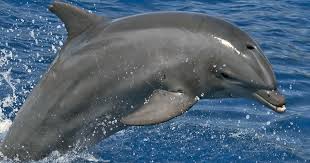Dolphins are not cargo or commodities. They are not assets a marine park can enter on a balance sheet. You cannot ‘own’ one, or list it in your inventory. They are independent individuals, with a right to their lives and their liberty. They are entitled to the opportunity to live unhindered in an environment that’s not being radically altered by human activity. In short, they are persons – albeit nonhuman persons.
Nevertheless, legally and in almost every place on earth, none of these things are the case. Most likely one day, but certainly not yet.
Seven years ago – in 2013 – India took the lead in bringing about what I believe will eventually be the case universally. That country made a bold and enlightened decision, and officially recognized that dolphins have personhood rights. To this day, this unprecedented level of respect for, and legal recognition of, a dolphin’s rights has not been matched by any other country in the world. Now to be clear, India was not the first country to ban cetacean captivity. Three others (Costa Rica, Hungary and Chile) had previously banned their capture, import and confinement for the purposes of commercial entertainment. But India was the first to take the all-important step of awarding them personhood rights.
I would like to see my own homeland – Canada – do the right thing and follow this precedent. Every nation on Earth should do the same. Ultimately, it’s going to be the only way we can bring about true justice for these extraordinary animals. We owe them this much.
The movement to recognize whales and dolphins as “individuals with self-awareness” and entitlement to a set of rights had first gained momentum three years previously, in Helsinki, Finland. That was when scientists (and ethicists) drafted a Declaration of Rights for Cetaceans. Among its tenets: “We affirm that all cetaceans as persons have the right to life, liberty and well-being”.
In a statement from the Ministry of Environment and Forests, India’s government said that research done to that point had clearly established that cetaceans are “highly intelligent and sensitive”, and that dolphins “should be seen as ‘non-human persons’ and as such should have their own specific rights”. It advised that dolphin parks that were being built across the country would instead be shut down. Disposable income had been increasing among India’s growing middle class, and with this new market for entertainment, parks were being proposed in Delhi, Kochi and Mumbai.
It is the very nature of dolphins – naturally playful and curious, and with an ability to delight and charm audiences – that put them in such high demand. The problem, of course, is that audiences were almost always completely unaware of the well-documented suffering experienced by the dolphins in these forced performances. Fortunately, and to their great credit, this is a case where policy makers really listened to the experts.
“The majority of dolphins and whales in captivity have been sourced through wild captures in Japan, in Taiji, in the Caribbean, in the Solomon Islands and parts of Russia. These captures are very violent,” explained Puja Mitra from the Federation of Indian Animal Protection Organizations (FIAPO). She argued that the experience of captivity is torture for such a being. For example, her testimony noted that orcas and other dolphins navigate by using sonar signals, but in tanks, the reverberations off the walls cause them “immense distress”.
Lori Marino, a leading expert in marine mammal science, provided evidence that cetaceans have “large, complex brains especially in areas involved in communication and cognition”. Her work has shown that dolphins have an exceptional level of self-awareness, can recognize their own reflection, and can understand abstract concepts. As well, much as we use names to identify one another, they use “unique signature whistles allowing friends and family members to recognize them”. What all this scientific evidence added up to was an introduction of the concept of non-human persons, according to Mitra.
Fortunately, the government agreed. And history was made.
We would all do well to follow India’s lead.
For The Orca’s Voice,
Phil, Canadian Cetacean Alliance



Leave a Reply